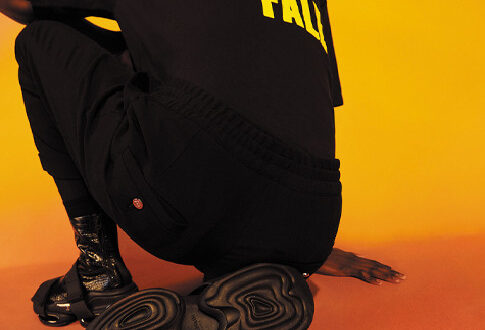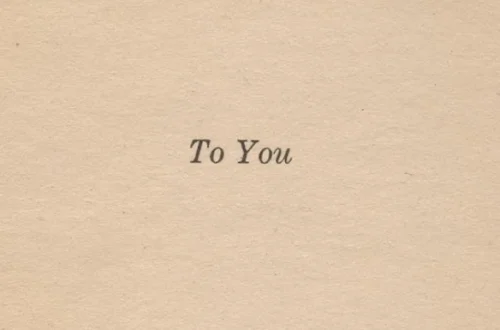
“The Bridge to Terabithia” and the Death of Childhood Innocence
I’ve been thinking a lot recently about childhood. Ironically, whilst steeping further into adulthood like a tea bag into scalding water.
From the books I read carelessly as a child to the shows and films that momentarily peeked my attention, the usual lapses into the realm of fantasy were fun-filled and exciting. There were all types of beasts and fairies, mighty quests of ambitious, foolhardy heroes, and damsels in distress wishing upon stars for their knight. And without fail there was always a happy ending.
Always.
Except when there wasn’t. Except the one time when the girl with the bright smile and blue eyes and golden hair crossed into the world of make believe, and she didn’t come back.
For those who grew up having watched “The Bridge to Terabithia” (2007), I’m sure you can recall the emotional rollercoaster of a ride that is this film. How each scene seemed to carry you up, up, up until your head was soaring above the clouds before dropping you abruptly down to the pavement in the last half hour. The way your stomach climbed up into your chest, and your mind was thrown into a daze, and your heart ached for something you couldn’t quite put into words.
And though you may not have had the vocabulary then to recognize that discomfort in your gut as grief, you may have thought to yourself how very unfair the ending was. And you’d be right in your assessment. Life is typically unfair. And it is when we are met with the short and fleeting nature of it that our view of the world changes forever.
I can imagine the same can be said for the 12-year-old protagonist of the film, Jesse Aarons (Josh Hutcherson). Prior to losing his best friend Leslie (Anna Sophia Robb)—I would apologize for spoilers but come on it’s been over a decade!—Jesse maneuvered through the world as any typical middle schooler would. He went to school, came home, did his chores, fought with his siblings, and somehow found time in-between to go on wild adventures.
In their imaginative Kingdom of Terabithia that lie deep in the woods was where Jesse and Leslie would escape from reality. Together they fought against the Dark Master and his terrifying legion of hairy vultures and other repulsive goons on a daily basis. However, the one day Jesse decided instead to go on an impromptu art museum trip with his favorite teacher was the same day he was met with horrifying news.
Leslie was dead.
Jesse’s father informed him that she had died trying to swing on the rope hanging above a flooded creek. The rope had torn and she had fallen and hit her head on the rocks below. Jesse denied these claims saying that, “It wasn’t that kind of rope”. He would know after all, they had swung on that very rope numerous times. It had bore both their weights and carried them over the creek and into Terabithia. It wouldn’t break. His shock was met only by a firm, “but it did” from his father.
“You’re lying,” are the next words that fall from Jesse’s lips aimed pointedly out of anger and disbelief, “She’s not even dead”.
What followed was merely 12 minutes of on-screen mourning time for Jesse and what would become a sudden and sharp awakening for 6 year old me.
That human life is impermanent is a hard pill to swallow. That tragedy strikes unexpectedly and without forewarning is even harder.
Upon rewatching the film—now in my early twenties—the discontent that settles in my chest feels odd. No visual proof of her death is ever offered up. We, like Jesse, are sort of left feeling empty and confused. The adults around him try to comfort him in their own way, but it does little to stop or rewind time.
Leslie–a 12-year old girl with a passion for writing and crafting stories–is dead. Gone forever. Yet somehow the world keeps turning. The living keep living. Jesse still has to wake up and go to school, has to pay his respects to Leslie’s parents, has to deal with the same bullies harassing him, and his annoying little sister trying to pry her way into his world.
All of the mundane activities that once held meaning grow small in comparison to the space left behind by Leslie’s absence.
The loud and boisterous setting of the music room where the kids used to push their desks and chairs together is swapped instead for everyone sitting at a solitary desk and Jesse with his head hung low as the other children sing in unison. The bus ride home from school is eerily silent without Leslie’s playful banter. The forest where they fought epic battles feels lifeless and lackadaisical.
No amount of comfort from his English teacher who offers up her own experience of losing a loved one, or the bus driver apologizing for his loss, or even Leslie’s father thanking him for having been such a good friend to her can penetrate Jesse’s dark cloud of guilt and anguish.
The fantastical world of Terabithia fades into the background, but still Jesse refuses to allow himself to process her death.
He tells his teacher while at Leslie’s wake that the next time they go to the art museum they should invite Leslie because “she’d like that”. He runs into the forests of Terabithia and calls out her name, I suppose hoping that this is some elaborate joke and she will come rushing out to greet him. When he is met only by the tinkling of wind chimes, he settles to grabbing all of the paint tubes she had gifted him for his birthday and dumping them into the creek where the police found her body. The same creak where they had once let their heads “hang back and watch[ed] the clouds” and taken flight had now turned into a horrible ending place.
As the color floats up to the surface of the water from where he squeezes the paint out, it feels like Jesse is actively doing away with childish wonder and excitement.
This action on the part of Jesse signals the death not only of Leslie Burke but also of Jesse’s childhood innocence.
Or so it seems.
The Dark Master appears and begins to stalk Jesse through the forest. At some point he drops to his knees and strong arms–those of his father–encase him. His father calms him down and says that holding on to the special something that Leslie brought into his life is what will “keep her alive”.
It is this scene that I want to focus on, not the grand ending–with Jesse leading his younger sister, May Belle (Bailey Madison), into Terabithia for the first time as the newly crowned princess. No, that ending scene seemed more like pressing a band-aid to the gaping wound left in my heart. But as his father sits in the middle of the forest cradling and comforting him he tells Jesse that Leslie’s death is not his fault and to let go of that guilt. But on top of that he provides Jesse with a token of a truce. Adults don’t have all of the answers!
He admits to Jesse that Leslie’s death doesn’t make any sense and that it is a terrible thing. And by opening up to his son in this way and just holding him–a sharp contrast to his previous beratement and chastising throughout the rest of the film–he is telling his son that it is okay to feel every emotion pent up inside him.
For the first time since returning home from the art museum, Jesse actually cries. He finally just breaks down and sobs and his father holds him.
This film would have you believe that Leslie’s death serves as the major conflict in the story. But to me it highlights more of the classic distinction between the “reality” of adults and the imagination of children than it lets on.
What Leslie brought into Jesse’s life was special, that much is true. Losing her made it all the more easier to let go of his innocence and boyhood and trade it in for a large bite out of reality.
But what the film continues to hold up to the very end is the attempt to bridge the world between reality and imagination. And in turn to close the gap between adults and children. And if you “close your eyes, but keep your mind wide open” you may notice how very similar the two truly are.
Perhaps the main takeaway is that a bit of childish innocence and wonder is exactly what we all need to find magic in the world around us.


You May Also Like

Chloe Bailey’s Sex Appeal as Power
March 10, 2023
Olivier Rousteing: Young, Fashionable, and Black
March 24, 2023
